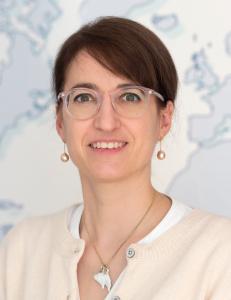Editorial
Since spring 2022, we at the Konrad-Adenauer-Stiftung have been following the events in Ukraine with dismay and horror, and our thoughts are with the people on the ground in these challenging times. Russia’s war is not merely an attack against Ukraine; it is also an attack against our European and international system. Moreover, it poses challenges to our work in Russia and the wider region. War is raging once again in Europe. For far too long, many political and societal leaders have ignored the experiences with autocratic systems during the 20th century and have instead relied on wishful thinking.
The Konrad-Adenauer-Stiftung has had an office in Kyiv since 1994 as well as a presence in Kharkiv since 2017. We care deeply about our colleagues in the region. Fortunately, we were able to bring them back to Germany safely, and we took supportive measures for our local staff.
At the same time, our experts have continued to analyse and stay current on the developments in Ukraine via our social media accounts, in the press as well as in our own publications and at our events. Furthermore, we continuously evaluate how the situation in Ukraine may affect our offices and work in other relevant countries.
Because this annual report is a review of 2021, it was completed just before Russia invaded Ukraine and therefore has a different focus. However, liberal democracies have been under increasing pressure well before the Russia’s attack on Ukraine in 2022. Russia’s aggressive foreign policy and the rise of China have led the Western alliance to face strategic challenges and geopolitical rivalry for some time. The dramatic images of the Taliban’s violent seizure of power after the unilateral withdrawal of US forces from Afghanistan clearly demonstrated the importance of, and difficulties associated with, international cooperation and coordination between partners and allies. In this case too, we were extremely happy to be able to evacuate our local staff from Afghanistan – where the Konrad- Adenauer-Stiftung had an office since 2002 – and to bring them to Germany. We still see it as our responsibility to stand up for our colleagues and to support their integration in this country.
In Germany, 2021 will be remembered for the devastating floods that occurred in summer and as the second year marked by the COVID-19 pandemic. The CDU/ CSU also fared very poorly in the federal election after having enjoyed a prolonged period in government. The 2021 election demonstrates that voters are now significantly more willing to vote for different parties than they were in the past. This has now become a crucial factor in German elections, a point that has also been confirmed by our own studies.
You can download the entire report as a pdf here.
Please send any questions or comments regarding the annual report to publikationen@kas.de.




